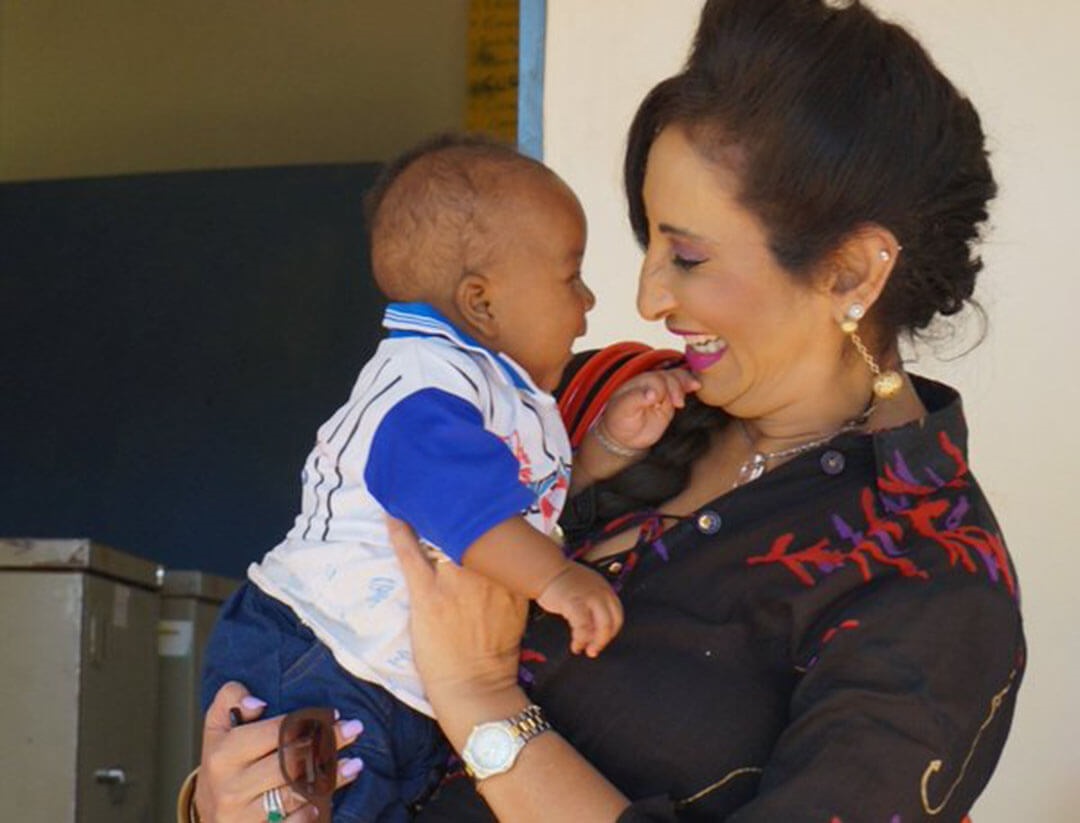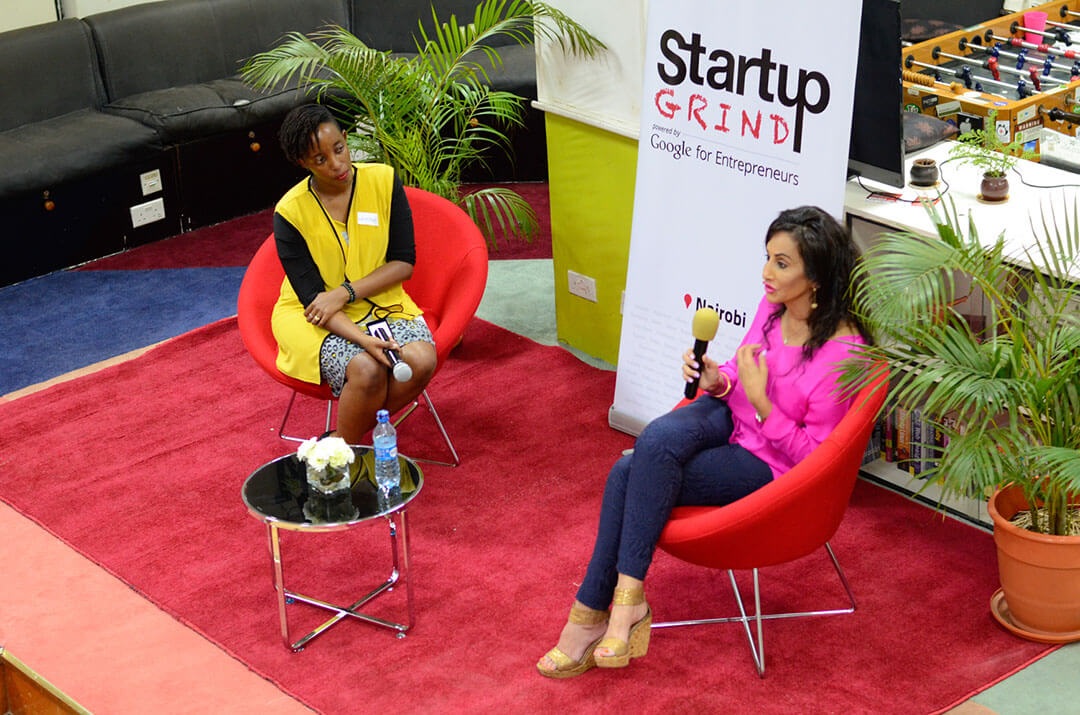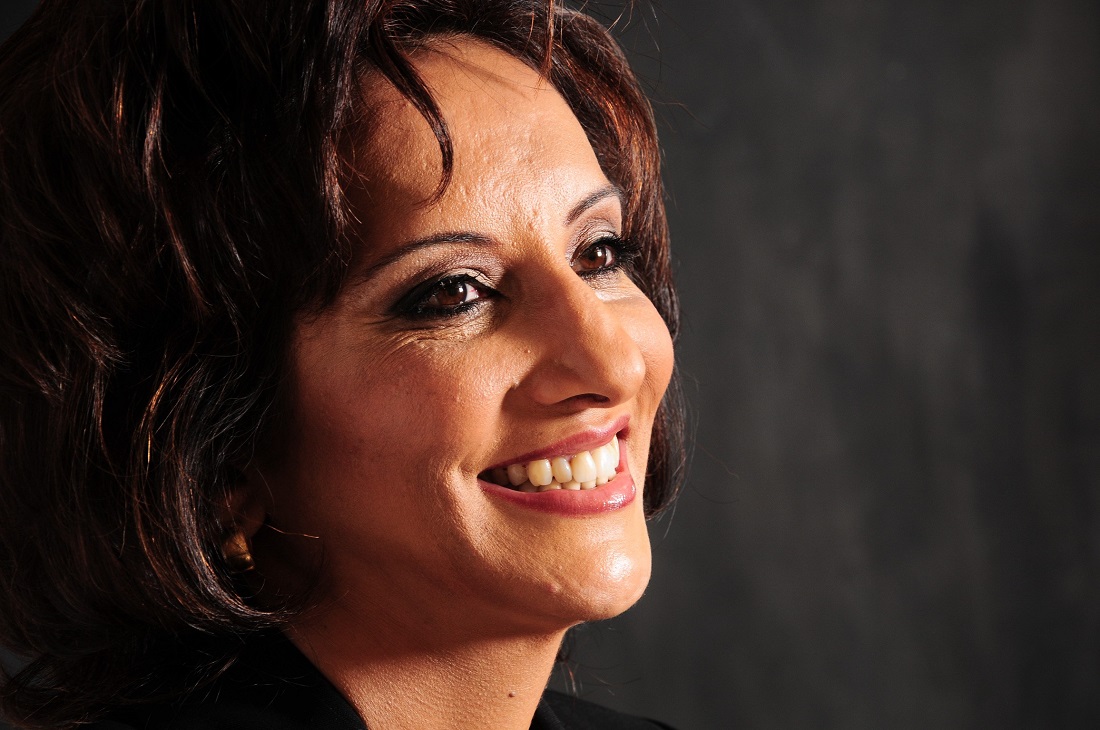[dropcap]G[/dropcap]ina-Din Kariuki is widely admired for her resilience in shaping African conversations, and a brand evangelist with over 30 years experience in the Public Relations and Communications. She talked to to Abel Muhatia of Biznews on how she grew the most reputable PR company in the region and her current challenges in the business world.
The Gina Din Group was started in 1997 – and celebrates 20 years this year! When it started, Gina Din was one of the only standalone PR companies in Kenya. Over the years a lot has happened, she says, some good, some hard lessons. “It’s been quite a journey,” says Gina Din. “It’s been a wonderful 20 years of shaping African conversations.”
1. What’s your take on the PR industry?
Everyone sees PR people as people who “spin” stories.. I don’t spin, I evangelise particularly for brands I represent and especially when it comes to the incredible success stories we have on this continent. It is up to us, Africans to change the narrative where we only see f****e, conflict, c********n and struggle. Of course I am a realist, and leadership and governance as a whole in Africa still poses challenges. However there are amazing success stories of people that have broken glass ceiling and overcome incredible challenges. I want to tell those stories. Over time, I have become more and more select on what work I do.
2. How did you decide that this is the path I want to follow in my life?
To be honest, I somewhat threw caution to the wind when I started my business. It wasn’t as if I had a plan of any sort but I realised that I wanted to do work that I was deeply passionate about. I wanted to create something that was bigger than me. There comes a point where one must stand alone. Sometimes familiarity and comfort need to be challenged. That’s when you really experience life – when you step into the unknown. Every day is different and every day I do work that fulfills me. I wouldn’t have it any other way.
Gina Din-Kariuki is a mentor, respected businesswoman, philanthropist and the Founder and Executive Chair of the Gina Din Group. With over 30 years of management service and experience providing state of the art media and communication strategy to corporates, governments and NGOs both in Africa and abroad, Gina has built a reputation as a leading authority in the communications field in Africa and has been named one of Africa’s 100 Most Influential People by New African magazine.
READ: Iron lady who’s making money from sports
In the last few years I have increased my commitment to philanthropy. I am the Goodwill Ambassador to the Kenya R*******s and to UNFPA as well as having my Gina Din Foundation. For me philanthropy is a lot more than simply writing a cheque. Of course providing resources is important but giving time, expertise and using my extensive global network is just as important. My foundation is fully self-funded right now, and it’s incredible the impact you can make to people’s lives by investing even a little bit in them. My involvement with UNFPA is what motivated to give back based on my personal experience of having a child that was premature and a lot of my foundation work is based on the realisation that giving to women is a powerful way to effect large-scale change in society.
3. How do you manage to keep your business relevant having in mind that technology disruption is fast rising in this generation?
We aim to stay at the top of our game in our industry, which means embracing technology and new trends, but we also do it by coming up with innovative ideas and executing them with excellence. We always want to add value. It doesn’t matter what industry you are in, people want to feel they are receiving a service that is of value and high quality – that will always be relevant to the end user.
I have had to reinvent myself a number of times in my career because things change, your clients’ needs change and I believe you remake yourself as you grow and as the world changes.
Philanthropy is a lot more than simply writing a cheque. Of course providing resources is important but giving time, expertise and using my extensive global network is just as important. Your identity doesn’t get found. It emerges.
4. How much did you need to start your business, and overcome the initial financial challenges?
I did not have capital when starting my business. I was fortunate to have a three year retainer agreement from my former employer Barclays Bank as my first client which helped me start. What I did have was faith and an inner belief in myself. When you have a new idea, you will find hundreds of people who will tell you why it cannot be done. And I had plenty of those. Do not give power to invalidating people. Believe in yourself – and believe in your idea. The learning process is to feel in your gut that you are right and that every obstacle is an opportunity.
READ ALSO: Success lessons from a film producer who made it by age 15
5. How do you manage to balance between family and business?
When I was younger, I looked at my own mother — at her passionate devotion to husband, children, home and extended family — and I thought I could improve on that! I would go out into the world– out where the important things were happening. It took me – as I think it took millions of other women, as well – a few decades to see how very wrong I was. I ultimately realised that my mother’s very traditional role was far from meaningless. I now see that is a woman’s God-given role to tend to the home and take care of the children: it’s just that the entire planet is our home and every child on it is one of our children. Hell yes, women need to be out in the world if that’s where we feel led to be, but not at the expense of our spiritual mission. Rather, we’re in the world to fulfill that mission, by proclaiming that the world is our home and that we’re responsible for all of our children.

I am responsible for my family and my business, and I give my time to both. I am lucky that my work takes me to different parts of the world and that I am fortunate enough to be able to take my family with me when I can. My two children Natalya and Naythan are both in the UK. Natalya is pursuing a PHD in English Literature at Oxford University while Naythan is pursuing a BA in Football business Management at Southampton University. I try and see them as much as I can. Family is very important to me, and so is my business, so I make it a priority to give my time to both. You have to make the decision that you’re going to do it.
When you have a new idea, you will find hundreds of people who will tell you why it cannot be done. And I had plenty of those. Do not give power to invalidating people. Believe in yourself – and believe in your idea.
6. What kind of challenges do you face in your day to day work and how do you manage to overcome them?
I often meet young people who believe the PR and communications business is cool, glamorous and endless cocktail parties and travel. I must admit, I am living my dream. I love what I do but the first steps toward any dream are slow, unsexy, and inconvenient. I have handled most of corporate Kenya and it is well known that I handled Safaricom from when they started for 12 continuous years and I am absolutely delighted every time I see the name. Its success makes me so proud. I consider it a huge part of my life. But it was hard work. For a long time I would be on the phone to Michael Joseph at 6.30 am most days by which time I would have had to have read and analysed the media for the day and have a strategy for the way forward if need be.
SEE: The seven lifestyle conditions putting your success on hold
Life has taught me that to overcome challenges you need to develop a thick skin and build an inner strength. You have to take failure and success in equal measure. Failure is bound to happen, it doesn’t matter how many accolades you have won or how successful your business is. The key is to fail forward; evaluate what went wrong, learn from your mistakes and keep going. I used to be really afraid of being outside my comfortable zone but the more experience I get the more comfortable I am being uncomfortable and that’s where most of my growth as a person happens.
7. The topic on girl child and women empowerment has been around for a long time now, do you think women have been empowered enough?
To be empowered is to have control and confidence. It’s something we should strive for, for all our children, it’s something that we need to work towards if we want to build a sustainable and equal society. There are, however, issues that are unique to women. Women still do not have the same opportunities as men when it comes to access to education, health and more.
Societal norms dictate that women should stay in the home and do a disproportionate amount of household work despite the fact that she may have ambitions that go beyond that.
And when they do enter the workforce, women are not paid as much as men for doing the same type of work. A UN report actually found that this type of disparity is costing Africa more than $100 billion every year. The question then is how can we close the gender gap, while also supporting the boy child? It will take deliberate policy and action from our leaders, but we should also expect the same type of action from each other.
8. Are you content with the ratio of women entrepreneurs in Kenya to that of men? If not, why?
Kenya – and Africa – has many women entrepreneurs in the informal sector running businesses to support their families and in many cases, their extended families and friends. These are the women who reinvest their earnings back into their communities. It’s very inspiring to see what they do. They are building our future on their backs without any formal recognition.
In the corporate sector, the number of women entrepreneurs is growing steadily but we are still outnumbered by men. And I don’t believe it’s because there aren’t women out there who want to branch into entrepreneurship and have the ability to succeed..We need to find ways to support these women more.
I love what I do but the first steps towards any dream are slow, unsexy, and inconvenient. Life has taught me that in order to overcome challenges you need to develop a thick skin and build an inner strength. You have to take failure and success in equal measure.
SEE ALSO: Financial decisions you must make before you hit 40 years
9. How can this ratio be improved for the sake of growing a sustainable economy and create employment?
Women need the opportunities and the tools to allow them to become the leaders and entrepreneurs that they were meant to be. It starts at the beginning with education. Women are still less likely to get an education in Africa compared to their male counterparts, which hinders their ability to go on and start and run successful businesses. Women have less access to land and credit, which is an important factor when one decides to start a company.
Women also need to look inwards to know that they have the confidence and the ability to take calculated risks and pursue their aspirations.
10. Do you think the Kenyan culture favors men more than women in the context of ownership of businesses and leadership? Should this be a worry for women empowerment?
I am saddened when I hear well-educated, successful women refer to their “choice” to spend more time with kids rather than stay on a high-powered career track. They should never have to make that choice in the first place. Instead, we need to reconstruct the very nature of those top jobs if we want to include the unique perspectives of women at the table and take advantage of an enormous talent pool.
We have made great strides when it comes to women in senior positions in private and public sectors but it’s not enough. It’s a tall order to push back against the work patterns of a highly achieving economy, and I’m not unrealistic; I know the drill from my many years working in the corporate world with two young children. But until we acknowledge honestly that the relentless demands on professional leaders discourage smart and talented women, we will fail to move the numbers significantly for women at the top. So everyone loses.
Ironically the shift can only happen by men leaning in, since they are the ones who now hold the levers of power. In Africa where we used to speak of – it takes a village to raise a child and where we no longer have villages around us, that conversation must begin in earnest.
11. What advice would you give fellow women who look up to you and would love to venture into the entrepreneurship space?
To be honest, it took me a few years to become an entrepreneur. There’s a lot of confusion on entrepreneurship because not everyone that is self-employed is an entrepreneur. Being self-employed is definitely more secure because you tend to depend mainly on yourself and your skills that you are selling. After a few years of being self-employed I began to venture in areas that required a lot more risk such as real estate development and oil exploration. Entrepreneurs have a mind-set that allows them to see opportunity everywhere.

But until we acknowledge honestly that the relentless demands on professional leaders discourage smart and talented women, we will fail to move the numbers significantly for women at the top. So everyone loses.
It could be a business idea, but it could also be seeing the possibilities in the people that can help them grow that business. Entrepreneurship is all about embracing challenges. When you’re building something from the ground up, you need to understand what your talents are and how you’re going to use them to create a business. Entrepreneurship is a lifestyle; being an entrepreneur is ingrained in one’s identity. It’s the culmination of a certain set of characteristics: determination, creativity, the capacity to risk, leadership and enthusiasm.
Being a successful entrepreneur requires a great deal of resourcefulness, because as an entrepreneur, you often run into road blocks, and I have run into several of those. You need to be able to bounce back from losses if you want to be successful. Know that you will experience disappointment, but you will also experience success.
READ: Esther Passaris: A t***c mix of brain and beauty
12. What are the top three lessons you would give to up and coming entrepreneurs?
Be prepared to work hard and take a lot of risks. The work you will do will not always be easy or glamorous. Be patient and tenacious. It may take a long time before you get to where you want to be, but if you learn to love the journey it will be worth it.
If you draw up a plan for your life, make sure you draw it in pencil. I never ever thought my life would have taken me on this incredible journey I am on, it’s required a lot of risk, flexibility and faith and taken me to places I never thought I would visit and meet people from across the world that have greatly inspired me. Do it because you love it. I truly believe that’s when magic happens. (This article first appeared on BizNews)

